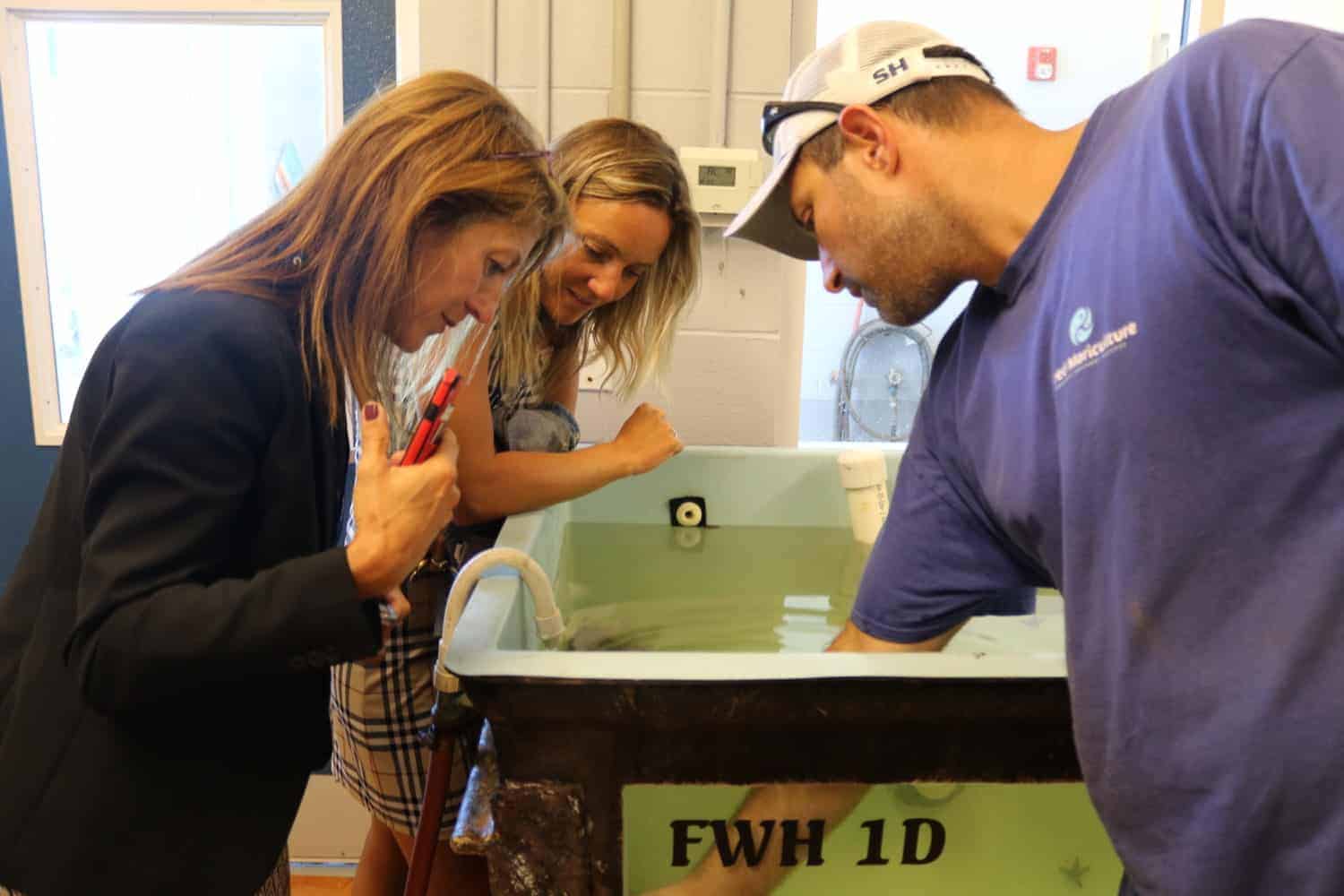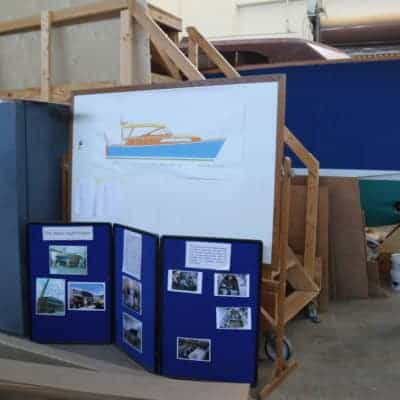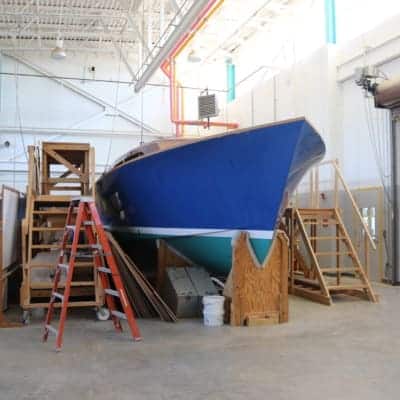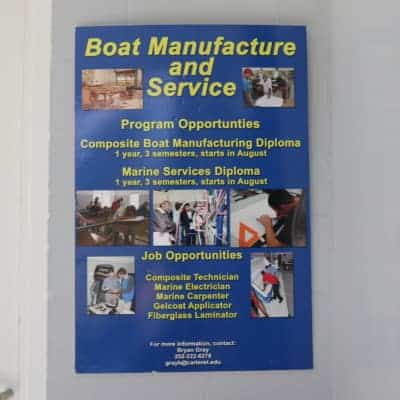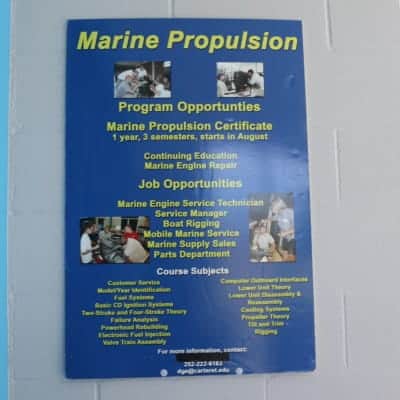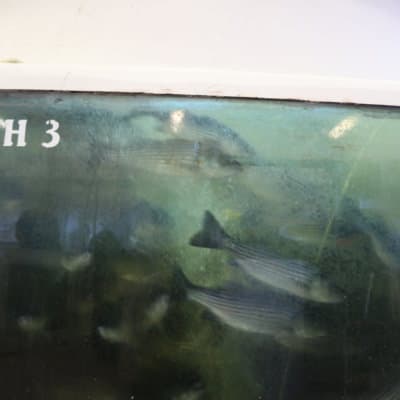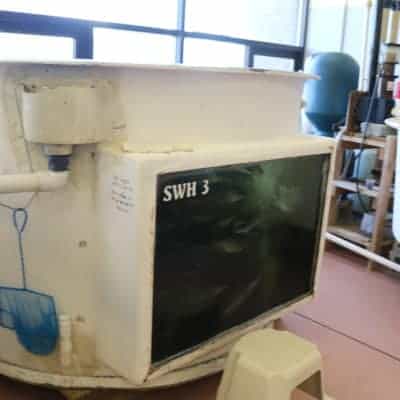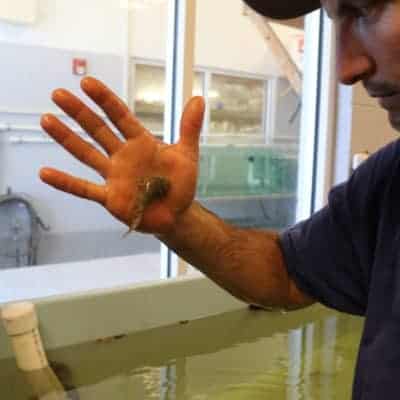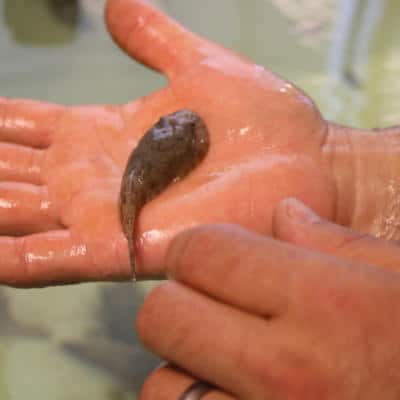Like many community colleges across the state, Carteret Community College is uniquely built around the people, industry, and opportunities of its region. For Carteret, those things are all deeply connected to one thing: water.
Perry Harker, the college’s vice president of corporate and community education, grew up in Carteret County and had fishermen for grandparents. He explained the college’s connection to the coast like this:
“We have a deep tradition in water-based occupations: fishing, boat-building, those kinds of things,” Harker said. “It’s just a tradition in our community. So we are engaged with helping those industries that are located in our community, particularly manufacturers and small boat-builders and repair shops. We’re out listening to them, talking to them, hearing their needs, walking through their plans, seeing their operations, and then trying to respond with training that they need to prepare their workforce.”
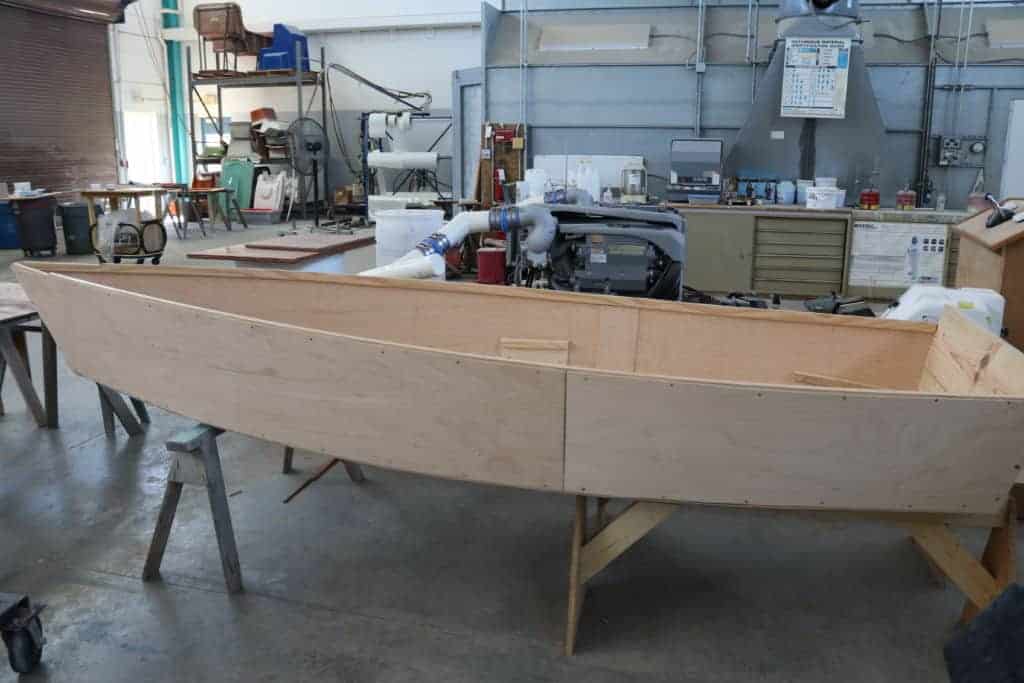
President John Hauser said Carteret CC has a “unique location,” and, therefore, “unique programs.” The college offers one of two boat manufacturing programs in the state, the only marine propulsion program in the state, and the only marine captain certification program in the state where students can both take classes and the exam necessary for certification. Half of Carteret CC’s early college high school slots are reserved for students studying marine trades or sciences.
The coast also makes tourism a major economic engine in the community. In the summer months, Carteret County goes from about 68,000 residents to 150,000. The college is always working to fill the needs that come with that surge of people, said Tracy Mancini, Carteret CC’s vice president of instruction and student support.
“We have a lot of tourists who come in, and our programs reflect that as well,” Mancini said. “So we have culinary and baking and pastry arts programs. We have hospitality programs and fine arts programs and photography programs because there are a lot of artists here who cater toward tourists.”
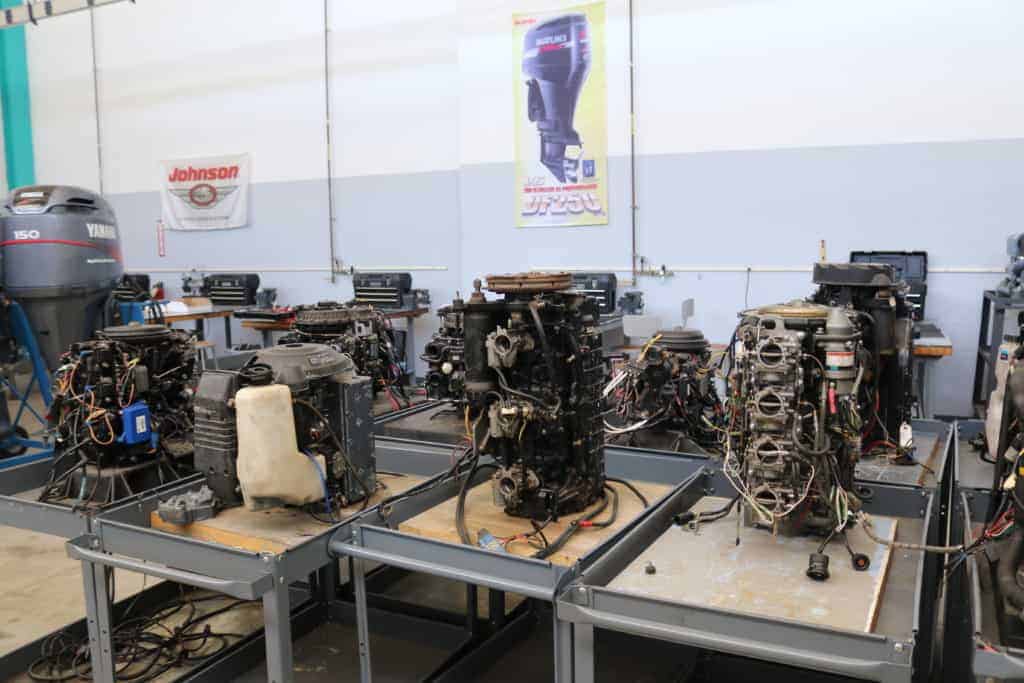
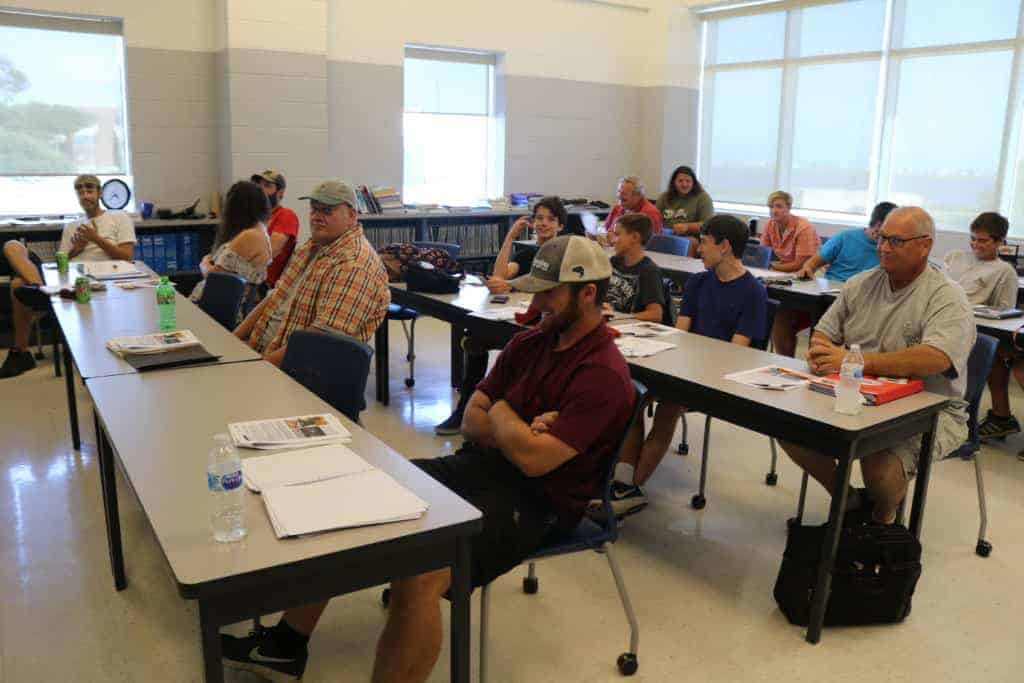
Later this year, the college will start construction of a new hospitality and culinary center that will include a 150-person event space. Its culinary program has cultivated a relationship with a group of French chefs over the last 13 years. Four graduates travel each year to live and learn from the Michelin-star chefs and return to share knowledge and skills with students in the program. The chefs also visit annually to teach and share culinary opportunities around the world with Carteret CC students.
To add to the list of “unique programs” students can find at Carteret CC is the only saltwater aquaculture department in the state. David Cerino is the chair of the program and, after asking him to explain aquaculture as if I was a fifth grader, he broke it down:
“The way I define it is, ‘aqua’ is water, ‘culture’ is to grow stuff, so we’re growing stuff in water, and that’s the simplest way to put it,” Cerino said.
Cerino said the program can be split into three parts: mariculture, or working with outdoor environments; recirculating indoor systems, or raising fish in controlled tanks; and hatchery, which supplies the seeds to both of those industries.
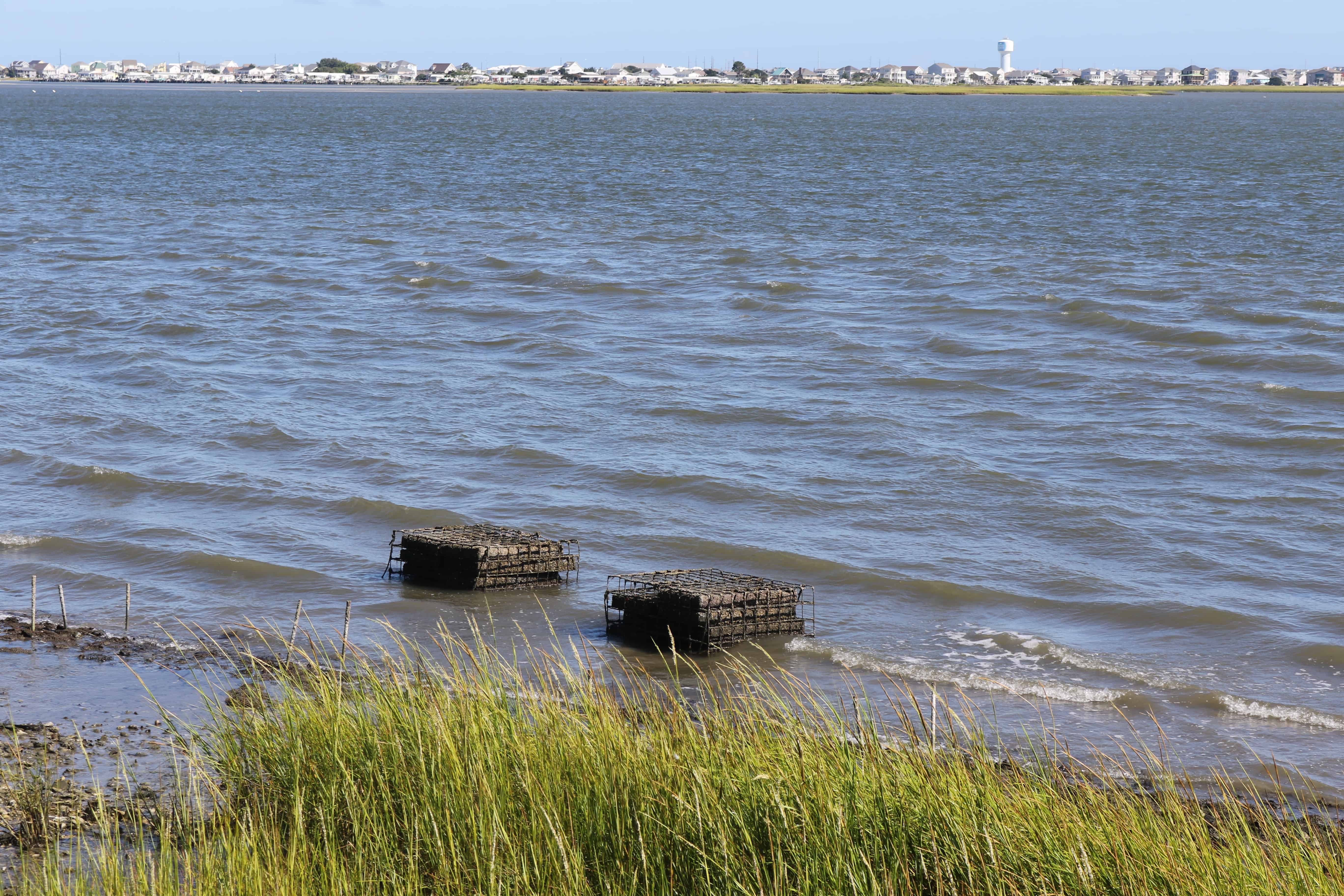
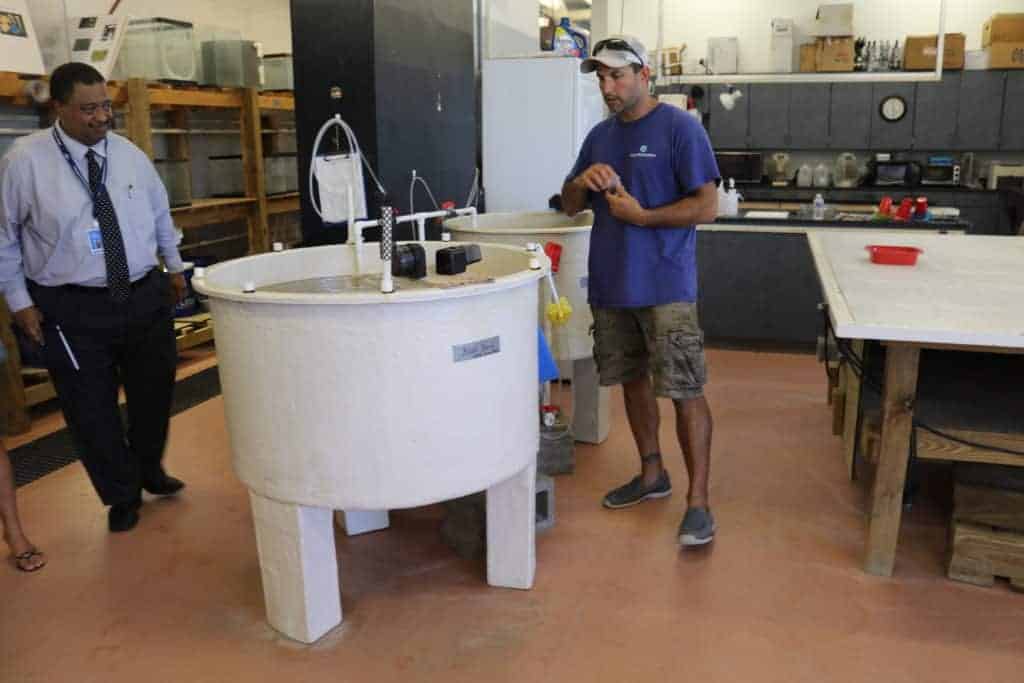
The program has about 20 to 25 students each year. Cerino said a large chunk of those students go for a one-year certificate that gives them the opportunity to work at shellfish farms or start their own. A two-year degree in aquaculture technology is another option.
Graduates of the two-year program, Cerino said, can work at public aquariums, research facilities, and hospitals that are starting to use fish as model organisms. One of his recent graduates opened his own shrimp farm that the class will visit this semester. Others transfer to four-year universities to study biology or marine biology — Carteret CC has agreements with both the University of North Carolina at Wilmington and East Carolina University.
“If you look nationally and internationally, there’s opportunities all over the place,” he said. “There’s very few training programs specific to aquaculture.”
The department is starting to look into yet another aquaculture industry: ornamental fish breeding, or growing fish to fill public aquariums or to be sold as pets. Cerino said there is tons of opportunity for growth in the industry, which is why he wants to expose students to the market now.
“The marine fish production for the pet trade is still kind of a young, fast-growing industry,” he said. “But aquaculture fish are preferred for pet trade because they’ve always lived in a tank, they eat better, as well as the sustainability factor of it. They’re better-suited to be held in captivity.”
Below, listen to Cerino explain two techniques of ornamental fish breeding:
Big things are in store for Carteret CC in the near future. President Hauser said the college is joining a national consortium of about 15 community and technical colleges across the country to be recognized as a “maritime center of excellence” by the Maritime Administration next year. That partnership has already allowed the college to partner with a small shipyard owner in town and help land a $1 million grant to lift larger vessels. The shipyard will be the only site on the east coast, Hauser said, that can lift 300-ton boats.
“[The colleges] have been working together in steps along for the past year, little bit more than a year, to address the workforce gaps in the marine trades and the maritime industry, everything from captains to ship-builders to welders … it’s a number of unique positions that’s on the water or in the water.”
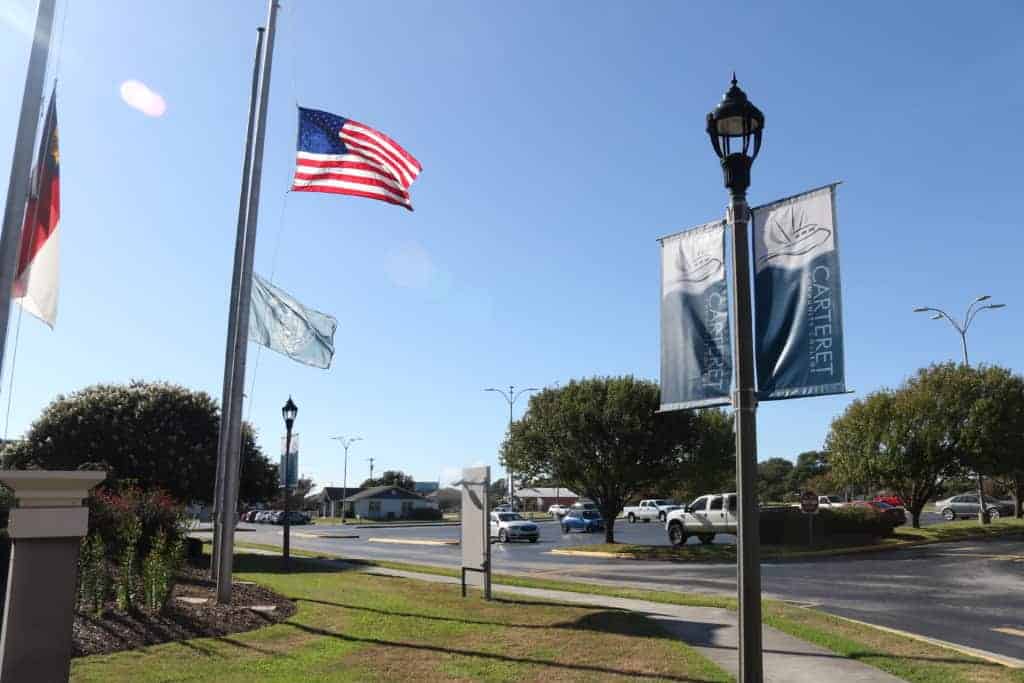
Other regional changes, like the development of Interstate-42, are on Carteret CC’s radar. He said the college’s administration meets at least twice a year to discuss the impacts of population and tourism growth down the road. Hauser said this partnership reflects the college’s desire to think long-term and plan to support the community’s evolving needs.
“We’re just trying to strengthen our presence in this community — and within the state.”
